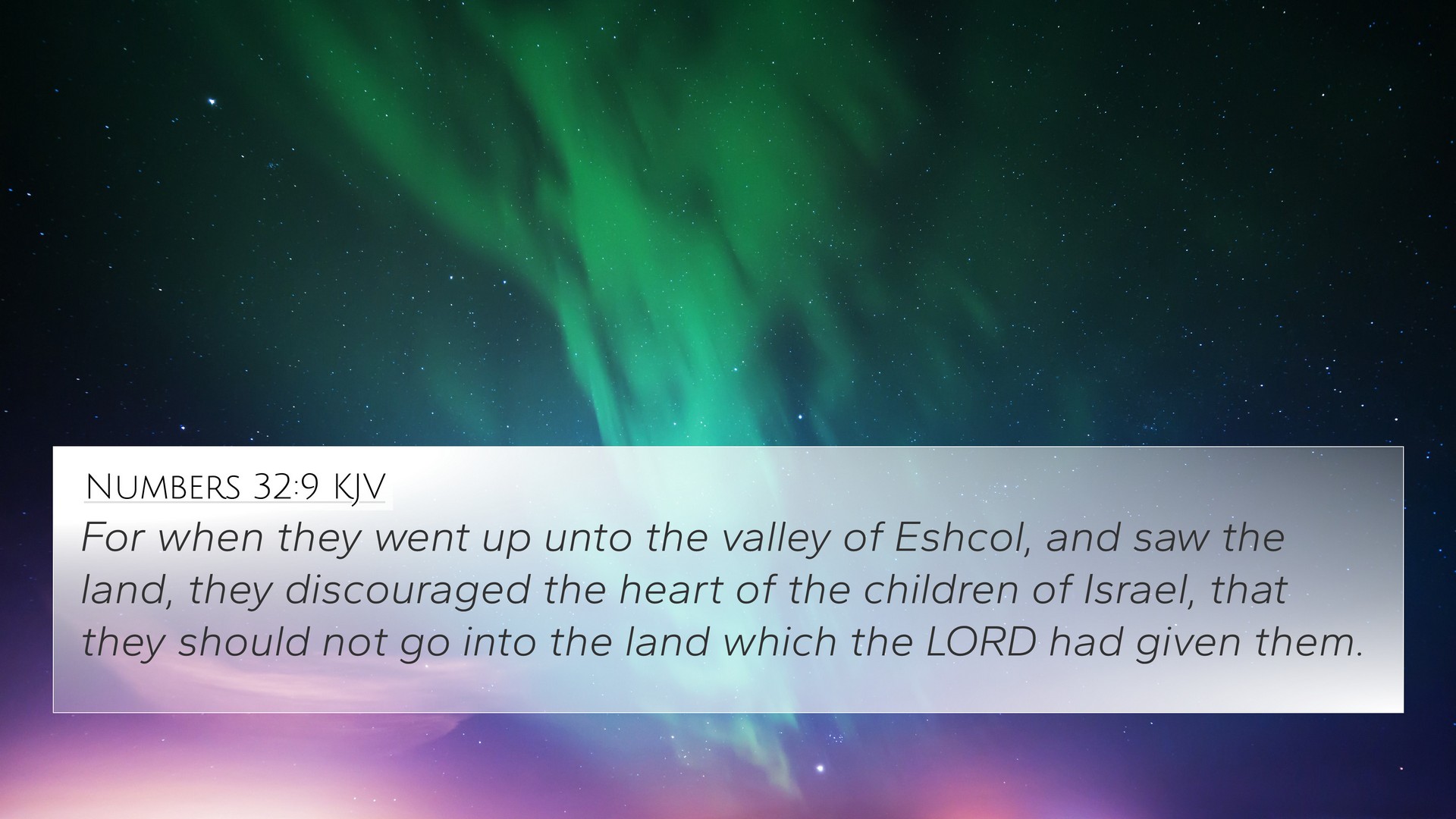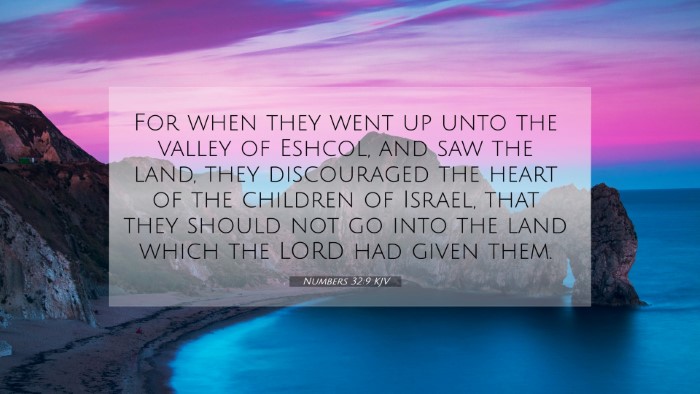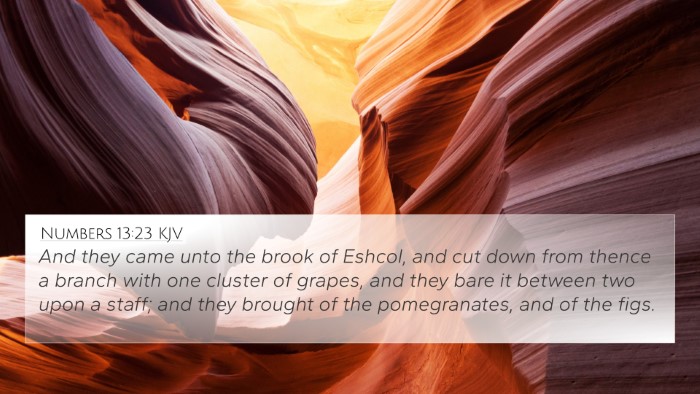Understanding Numbers 32:9
Numbers 32:9 states: "For when they went up unto the valley of Eshcol, and saw the land, they disheartened the heart of the children of Israel, that they should not go into the land which the LORD had given them." This verse marks a pivotal moment in Israel’s journey to the Promised Land, highlighting the impact of perception on collective faith.
Meaning and Context
This verse is situated within the narrative of the Israelites as they stand on the brink of entering Canaan. Following the reconnaissance mission of the twelve spies, two of whom give a good report, the majority’s fearful report leads to widespread discouragement among the people. This passage underscores the themes of faith versus fear, collective responsibility, and the consequences of negative influences.
Commentary Insights
Several public domain commentaries elucidate this verse further:
- Matthew Henry's Commentary: Henry emphasizes the importance of leaders setting a faithful example. He highlights that the report of the spies serves as a test of faith, suggesting that the discouragement came not just from the spies' report but from a loss of trust in God's promises. The report 'discouraged the heart' illustrates the power of fear over faith, calling believers to be mindful of their words and influence.
- Albert Barnes' Notes on the Bible: Barnes interprets this verse as a cautionary tale about the dangers of negative reports. He notes that fear can lead to disobedience and missed opportunities for God’s blessings. The reference to the 'valley of Eshcol' serves as a reminder of the richness of the land, which was overshadowed by the spies’ discouraging words.
- Adam Clarke's Commentary: Clarke points out that the fear reflected in this verse was a deeper issue within the Israelite community—an evident lack of trust in God’s provision. He connects this event to the broader narrative of faith and rebellion, suggesting that the Israelites’ reaction to the spies' report was a reflection of their spiritual state.
Related Bible Verses
This verse resonates with several key Biblical themes and can be cross-referenced with the following scripture:
- Exodus 3:17: God’s promise to deliver the Israelites to a land 'flowing with milk and honey.'
- Deuteronomy 1:28: The fear expressed by the Israelites about the strength of their enemies.
- Joshua 1:9: The command to be strong and courageous, emphasizing trust in God’s presence.
- Psalms 106:24-25: A reflection on how the Israelites despised the promised land due to disbelief.
- Hebrews 3:19: Stating that the Israelites could not enter the land because of unbelief.
- Numbers 14:1-4: The immediate aftermath of the spies’ report, showcasing Israel's rebellion against God.
- 1 Corinthians 10:10: The New Testament perspective on the consequences of the Israelites' complaints.
Thematic Connections
Numbers 32:9 invites broader thematic explorations within Scripture, linking to various narratives concerning faith, leadership, and consequences of disbelief:
- When examining The role of leadership, this verse serves as a powerful reminder of the potential impact leaders wield over communities and the necessity for faith-driven guidance.
- In terms of faith versus fear, it provides a poignant example of how collective fear led to disobedience and the alienation from God’s blessings.
- The concept of God's promises, through narratives such as that of Abraham, provides contrast with the Israelites' faltering faith, reinforcing the call for trust in God's word.
Cross-Referencing for Study
For those looking to delve deeper into the connections between Bible verses, one can use several tools and methods:
- Bible Concordance: Utilize a Bible concordance to find key terms and related verses that echo the themes in Numbers 32:9.
- Bible Cross-Reference Guide: Employ guides specifically designed to highlight themes, keywords, and cross-references across the scripture.
- Cross-Referencing Bible Study: Engage in biblical study groups, sharing insights and interpretations of connected verses.
Conclusion
In summary, Numbers 32:9 serves as a critical reflection point on faith, fear, and the power of influence within a community. By examining this verse through the lens of related scriptures, readers can appreciate the broader narrative of trust in God amidst challenges. The insights gleaned from commentaries enrich our understanding, prompting personal reflection on how we respond to God's promises in our own lives.




